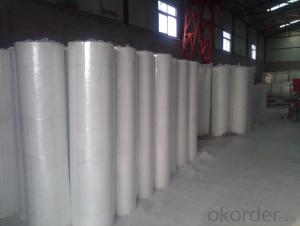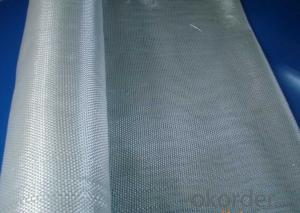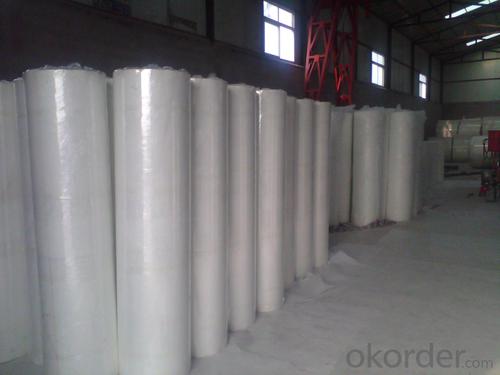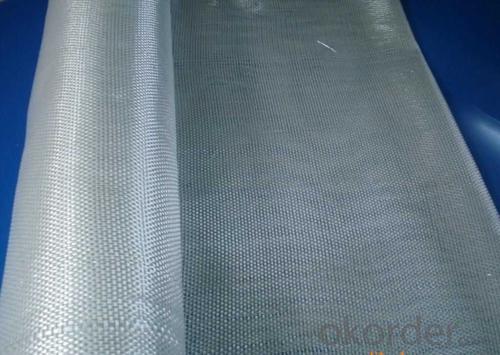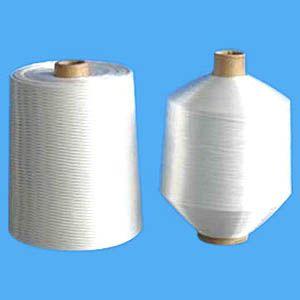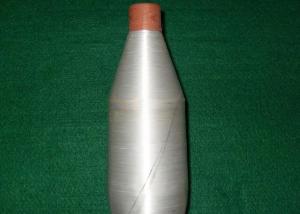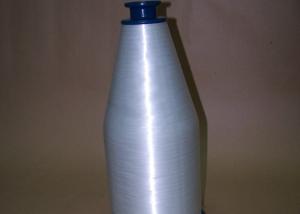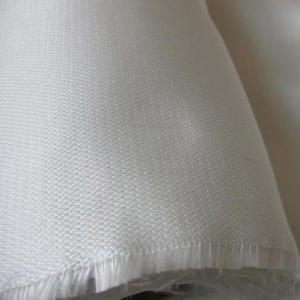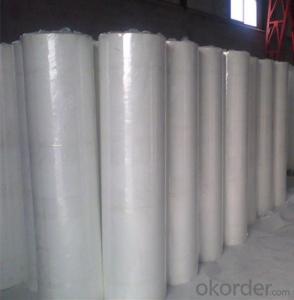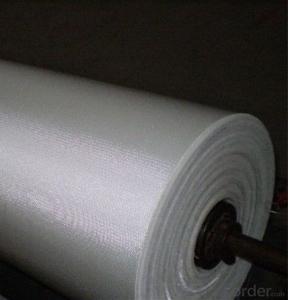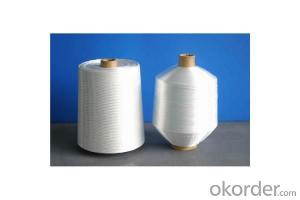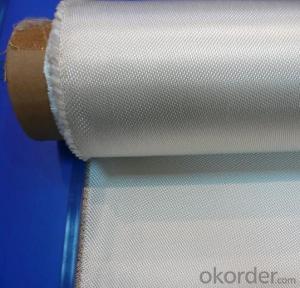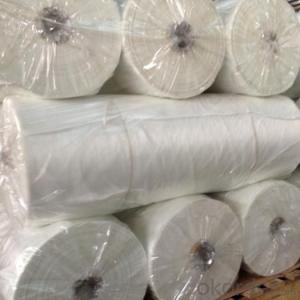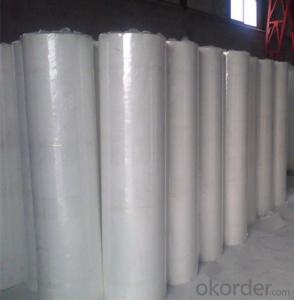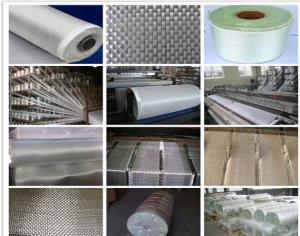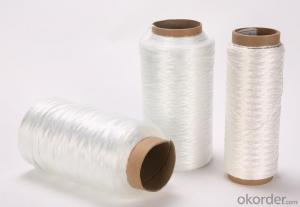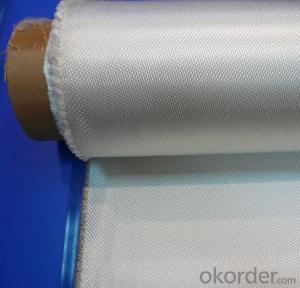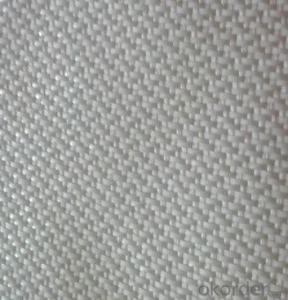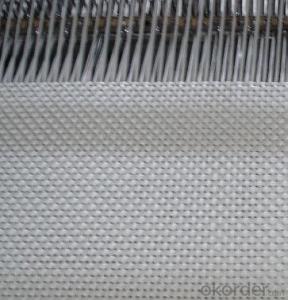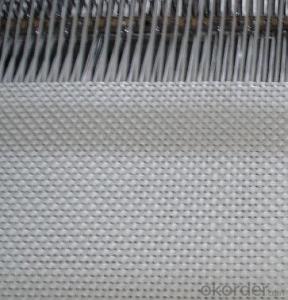Fiberglass Yarn Reinforced Fiberglass Fabric for Pipeline Ductile Conjunction
- Loading Port:
- Shanghai
- Payment Terms:
- TT OR LC
- Min Order Qty:
- 500 m²
- Supply Capability:
- 50000 m²/month
OKorder Service Pledge
OKorder Financial Service
You Might Also Like
Fiberglass Fabric for Pipeline Ductile Conjunction
Fiberglass Fabric Introduction:
Fiberglass fabric is weaved by high quality fiberglass,as a kind of engineering material,which is
many excellent characteristics:
flame-resisting,corrosion resistant,high strength,heat resistance.stable structure,good chemical resistance,durability.
Fiberglass Fabric Features:
Warp and weft yarns are parallel arrangement as flat situation, with uniform tension;
Fiber is aligned with large consistency, stable and easy operation;
Good moldability, fast and complete wet out in resins, resulting in high productivity;
Good transparency and high strength of composite products.
Fiberglass Fabric Specification:
mark | Fiber consistency(ends/ cm) |
Area weight (g/ m2) |
Thick-ness (mm) |
Width (cm) |
Length (mm) | Breaking strength(N)≥ |
weave | |||
Warp direction | Weft direction | Warp direction | Weft direction | |||||||
EW200 | 16 | 12 | 200±20 | 0.2 | 90-130 | 300-1200 | 980 | 980 | ||
EW210 | 16 | 12 | 200±20 | 0.21 | 90-130 | 300-1200 | 1080 | 1080 | Twill weave | |
Plain weave | ||||||||||
EWR360 | 3.2 | 1.8 | 354±18 | 0.35 | 50-300 | 100 | 2000 | 2000 | ||
EW280 | 16 | 10 | 280±28 | 0.26 | 90-130 | 300-1200 | 1800 | 1800 | ||
EW300 | 14 | 10 | 320±32 | 0.3 | 90-130 | 300-1200 | 1500 | 1500 | ||
EW430 | 20 | 12 | 420±42 | 0.43 | 90-130 | 300-1200 | 2000 | 2000 | Broken twill | |
EWR136 | 10 | 10 | 136±13 | 0.136 | 100 | 200 | 850 | 850 |
Plain weave | |
EWR200 | 8 | 7 | 200±20 | 0.21 | 100 | 200 | 1200 | 1200 | ||
EWR400 | 3.6 | 3.2 | 400±30 | 0.4 | 100 | 50-100 | 2500 | 2500 | ||
EWR600 | 2.6 | 2.5 | 600±50 | 0.6 | 100 | 40KG | 4000 | 4000 | ||
EWR580 | 2.5 | 2.3 | 576±29 | 0.58 | 100 | 40KG | 3850 | 3850 | ||
EWR800 | 1.8 | 1.8 | 800±60 | 0.8 | 100 | 40KG | 4600 | 4600 | ||
Product Show
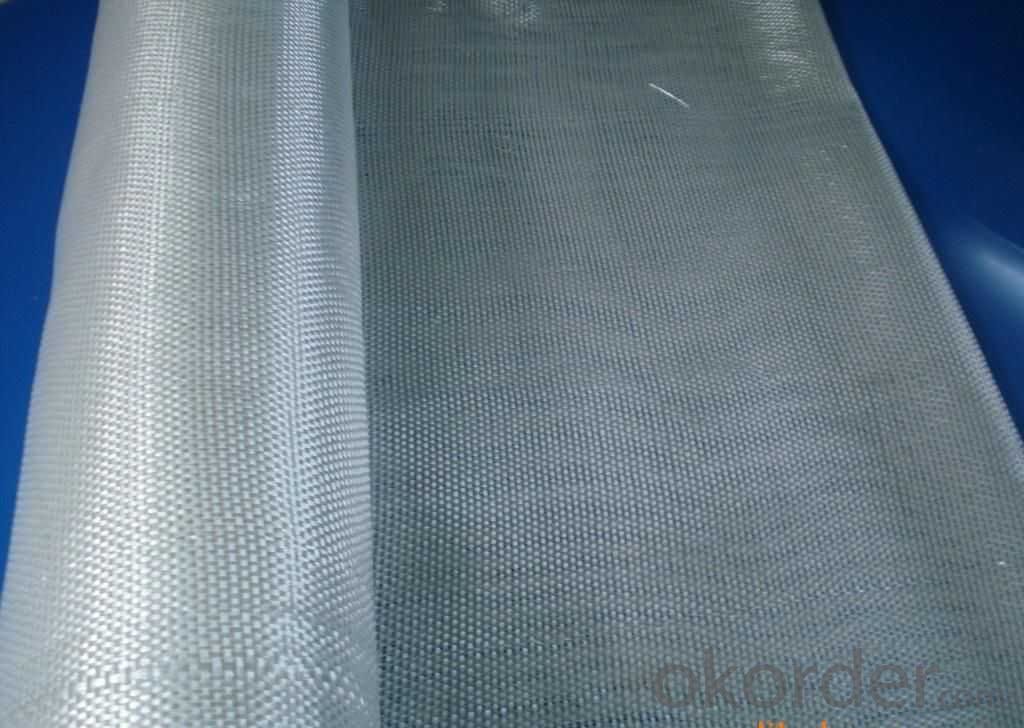
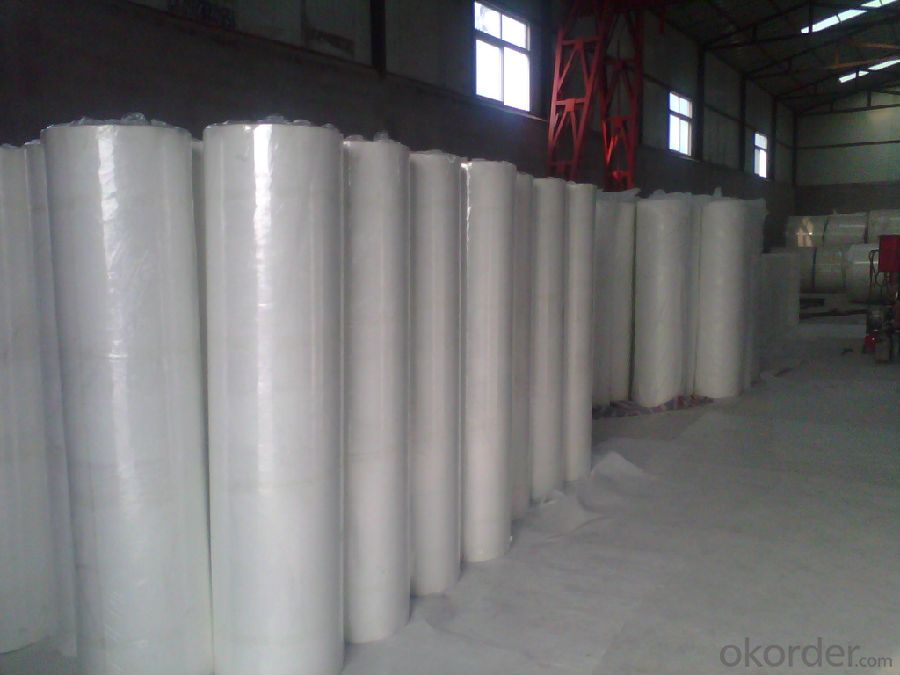
Fiberglass Fabric Usage:
E-glass woven roving is a schistose double faces reinforcement fabric that is weaved into from roving in directly.
E-glass fiber fabric (thin fabrics with thickness from 0.025 to 0.09mm) is suitable for electrical isolation mica product, wax cloth as the reinforcement materials.
E-glass woven roving applys to all kinds of polyester reinforcement system, (such as unsaturated polyester resin, vinylite,epoxy resin and phenolic resin.
E-glass woven roving is a high performance reinforcement material. It is widely used in hand lay-up and machinery processing products, (such as vessel, container, airplane and vehicle component, furniture, athletic facilities and other industry.
FAQ
1.Package of Fiberglass Fabric?
Fiberglass fabric is wound on a paper tube with inner diameters of 50. 8, 76 or 152mm. Each roll is wrapped in a plastic bag, then to be packed in a carton box. The rolls are to be horizontally placed.
Width (cm): 90, 100, 127
Length (m): 100, 200, 300, 400
2.Storage of Fiberglass Fabric?
Store rolls in a cool, dry location
Protect rolls from weather and other damage.
3.If sample available if needed?
We aim to offer our customer best Products&Service,samples are allowed if necessary.
- Q: Is fiberglass yarn resistant to tearing or ripping?
- Yes, fiberglass yarn is highly resistant to tearing or ripping due to its strong and durable nature.
- Q: Can fiberglass yarn be used in the production of ropes and cords?
- Yes, fiberglass yarn can be used in the production of ropes and cords. Fiberglass yarn is known for its strength, durability, and resistance to different environmental conditions, making it an ideal material for manufacturing ropes and cords. The fiberglass yarn is typically twisted or braided together to form a strong and sturdy rope or cord that can be used for various applications such as marine, construction, and industrial purposes. Its high tensile strength and low stretch properties make it suitable for tasks that require heavy lifting, towing, or securing objects. Additionally, fiberglass yarn is also resistant to chemicals, moisture, and UV radiation, which ensures its longevity and reliability in demanding environments. Overall, fiberglass yarn is a versatile and efficient material for the production of ropes and cords.
- Q: Can fiberglass yarn be used for making insulation boards?
- Yes, fiberglass yarn can be used for making insulation boards. Fiberglass yarn is commonly used as a reinforcing material in insulation boards due to its excellent thermal insulation properties and fire resistance. It can be woven or knitted into a fabric, which is then used as a base material for insulation boards. The fiberglass yarn provides strength and durability to the insulation board, making it suitable for various applications in construction and industrial settings. Additionally, fiberglass yarn is non-toxic and resistant to moisture, making it an ideal choice for insulation boards that require high performance and longevity.
- Q: What are the different thicknesses or weights of fiberglass yarn available?
- Fiberglass yarn is available in various thicknesses or weights to suit different applications and requirements. The thickness or weight of fiberglass yarn is typically measured in terms of the tex or denier. Tex is a unit of linear mass density, and it represents the weight in grams of 1,000 meters of yarn. The tex measurement system is commonly used for industrial applications. Fiberglass yarn is available in tex ranges such as 50 tex, 100 tex, 200 tex, and so on. The higher the tex value, the thicker and heavier the yarn will be. Denier is another unit of linear mass density, commonly used for consumer textiles. It represents the weight in grams of 9,000 meters of yarn. Fiberglass yarn can also be measured in denier, with options such as 300 denier, 600 denier, 900 denier, and more. Similar to tex, a higher denier value indicates a thicker and heavier yarn. The specific thickness or weight of fiberglass yarn required depends on the intended use. For example, thinner and lighter yarns may be suitable for applications such as reinforcement in composites, while thicker and heavier yarns may be more appropriate for insulation or thermal protection purposes. It is important to note that different manufacturers may offer a range of tex or denier options, and they may also have their own unique specifications and tolerances. Therefore, it is recommended to consult with the manufacturer or supplier to determine the specific thickness or weight options available for fiberglass yarn.
- Q: Is fiberglass yarn suitable for use in chemical processing equipment?
- Yes, fiberglass yarn is suitable for use in chemical processing equipment. It is highly resistant to chemicals, corrosion, and high temperatures, making it an ideal choice for various applications in chemical processing industries.
- Q: What are the safety precautions when handling fiberglass yarn?
- When handling fiberglass yarn, it is important to take certain safety precautions to protect yourself. First, always wear protective clothing such as gloves, long sleeves, and long pants to prevent direct contact with the yarn. Additionally, wear safety goggles or a face shield to protect your eyes from any loose fibers or dust. It is also recommended to work in a well-ventilated area or wear a respirator to avoid inhaling any fiberglass particles. Finally, ensure that you handle the yarn gently to minimize the risk of splinters or cuts.
- Q: Can fiberglass yarn be used for making backpacks or bags?
- Backpacks or bags can indeed be made using fiberglass yarn. This type of yarn is renowned for its exceptional strength and durability, making it the perfect choice for producing robust items such as heavy-duty backpacks and bags. By weaving or knitting the yarn into fabrics, a solid and tear-resistant foundation is created for these products. Furthermore, fiberglass yarn provides outstanding resistance against chemicals, heat, and fire, thereby offering an additional layer of protection to the backpack or bag. However, it is important to consider that fiberglass yarn may not be suitable for applications that demand flexibility and softness, as it tends to be rigid and less comfortable compared to alternative materials.
- Q: Is fiberglass yarn suitable for making window blinds?
- Yes, fiberglass yarn is suitable for making window blinds. It is a durable and lightweight material that can withstand exposure to sunlight and moisture, making it ideal for window treatments. Additionally, fiberglass yarn can be woven into various patterns and designs, providing versatility in creating blinds that offer privacy and control over light filtration.
- Q: Is fiberglass yarn suitable for use in automotive composites?
- Automotive composites can benefit from the use of fiberglass yarn as it possesses desirable qualities such as high tensile strength and stiffness. This material is both strong and lightweight, making it an ideal option for the automotive industry where weight reduction and strength are essential factors. Various automotive components, including body panels, structural reinforcements, interior parts, and underbody components, can incorporate fiberglass yarn. Its high strength-to-weight ratio enables the production of durable yet lightweight components, ultimately enhancing fuel efficiency and overall vehicle performance. Furthermore, fiberglass yarn exhibits remarkable resistance to corrosion, chemicals, and heat, warranting its suitability for harsh automotive environments. It also maintains good dimensional stability, ensuring the integrity of composites even under extreme conditions and temperature fluctuations. Moreover, fiberglass yarn can undergo various manufacturing techniques such as filament winding, pultrusion, and resin transfer molding. This versatility in processing methods facilitates the efficient production of intricate automotive parts with consistent quality and performance. In conclusion, fiberglass yarn is a fitting material for automotive composites due to its strength, lightweight nature, corrosion resistance, and easy processability. Its numerous advantages contribute to improved vehicle performance, fuel efficiency, and durability.
- Q: How does fiberglass yarn affect the durability of a product?
- The durability of a product can be greatly improved by using fiberglass yarn, thanks to its unique properties. To begin with, fiberglass yarn possesses a remarkable tensile strength, meaning it can withstand tension without breaking or deforming. This strength allows products reinforced with fiberglass yarn to bear heavy loads or stress without compromising their structural integrity. Moreover, fiberglass yarn exhibits exceptional resistance to corrosion, moisture, and chemicals. This resistance makes it an excellent choice for products that are exposed to harsh environments or come into frequent contact with corrosive substances. Unlike other materials that may deteriorate or weaken over time, fiberglass yarn helps maintain the product's durability and lifespan, reducing the need for frequent repairs or replacements. Additionally, fiberglass yarn boasts excellent thermal and electrical insulation properties, making it suitable for a wide range of applications. It can withstand high temperatures without melting or warping, which is particularly advantageous in industries such as aerospace, automotive, and construction. Moreover, fiberglass yarn has low electrical conductivity, minimizing the risk of electrical hazards in products where insulation is crucial, such as electrical cables or circuit boards. In conclusion, fiberglass yarn plays a significant role in enhancing product durability. Its high tensile strength, resistance to corrosion and chemicals, as well as its thermal and electrical insulation properties, all contribute to making products more robust, reliable, and long-lasting.
Send your message to us
Fiberglass Yarn Reinforced Fiberglass Fabric for Pipeline Ductile Conjunction
- Loading Port:
- Shanghai
- Payment Terms:
- TT OR LC
- Min Order Qty:
- 500 m²
- Supply Capability:
- 50000 m²/month
OKorder Service Pledge
OKorder Financial Service
Similar products
Hot products
Hot Searches
